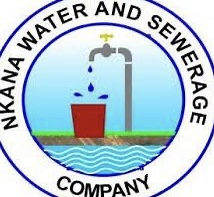The Board of Directors of the African Development Fund has granted a loan of US$13.2 million to Zambia to implement innovative measures and improve access to drinking water.
This is also meant to improve sanitation and hygiene for 460,000 people in Kabwe and Bauleni, Lusaka.
Additionally, the project approved this month, aimed to strengthen the resilience of the beneficiary populations to the effects of climate change.
In addition to the funding from the African Development Bank Group’s concessional loans window, the project is being supported by the European Union, the Bank Group’s strategic partner, with a grant of US$6.05 million through their Nexus Energy and Water Programme for Zambia, a transformative initiative under the European Union’s Global Gateway strategy.
Read more: AfDB raises capital from $201 billion dollars to $318 billion for continent’s developmental needs
Commenting on the project, Raubil Durowoju, the head of the African Development Bank Group’s Country Office in Zambia, said: “the project aimed to improve access to better-quality water and sanitation services in the town of Kabwe (in central Zambia) and Bauleni (a district of Lusaka city) and increase the operational and financial efficiency of water and sanitation providers in Lukanga (Centre) and the capital, Lusaka.”
Among other things, the project planned to rehabilitate the Mulungushi water purification plant in Kabwe (abstraction of water from the river, pipework for untreated water, replacement of obsolete treatment and pumping equipment) to relaunch production of 37,500 cubic metres of drinking water per day.
It also planned to improve water transport and distribution pipe networks, with an extension of over 70 km, and to build and equip five boreholes in the catchment areas of Kalulu (in the south-west) and Mukobeko (Centre) in Kabwe town.
The project would use renewable energy technologies and introduce innovative measures, such as smart meters, to reduce operating costs through the installation of energy efficiency equipment in the water production and supply system.
WARNING! All rights reserved. This material, and other digital content on this website, may not be reproduced, published, broadcast, rewritten or redistributed in whole or in part without prior express permission from ZAMBIA MONITOR.












Comments